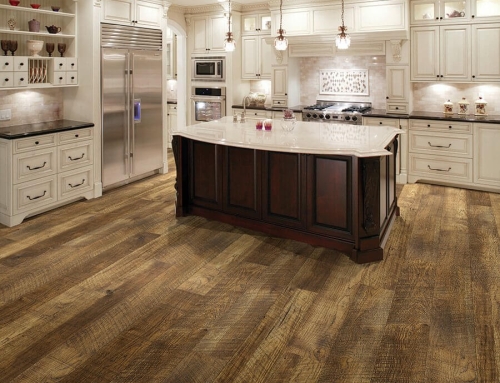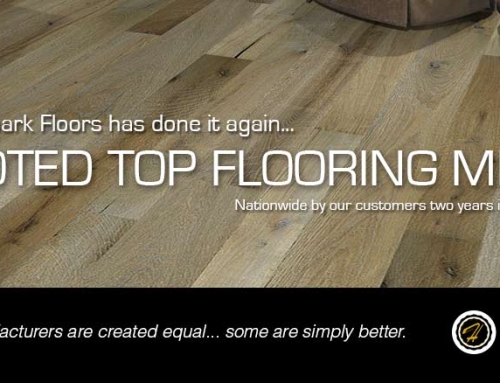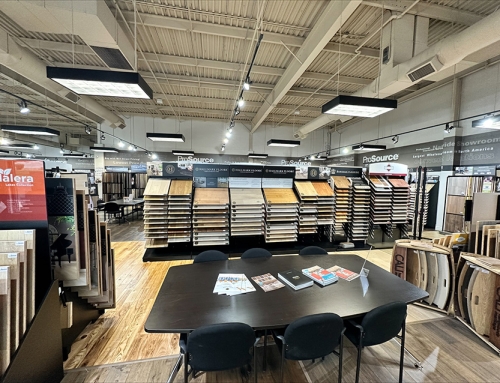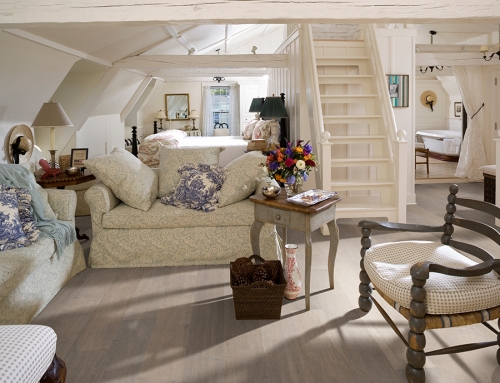Explore Durable Vinyl Floors That Transform Your Kitchen
Where sophistication meets style.
Vinyl flooring is an excellent choice for a kitchen renovation, offering a perfect blend of durability, water resistance, and aesthetic versatility. The most durable options fall under the category of Luxury Vinyl Flooring (LVF).
Here is a comprehensive breakdown of the most durable vinyl floors to transform your kitchen:
1. TOP DURABLE VINYL OPTIONS FOR KITCHEN
The two main types of durable vinyl for a kitchen are Luxury Vinyl Plank (LVP) and Luxury Vinyl Tile (LVT), with various core options influencing their strength.
| Vinyl Type | Appearance | F0rmat | Core Type for Max Durability | Key Benefit for Kitchens |
|---|---|---|---|---|
| Luxury Vinyl Plank (LVP) | Long, rectangular planks that mimic the look of hardwood with realistic grain and texture. | Planks | SPC (Stone Plastic Composite) or Rigid Core | Superior water and scratch resistance, often with a thicker wear layer. |
| Luxury Vinyl Tile (LVT) | Square tiles that mimic the look of stone or ceramic tile, often allowing for custom patterns. | Tiles | SPC (Stone Plastic Composite) or WPC (Wood Plastic Composite) | Highly durable, moisture-resistant, and great for replicating a traditional tile look. |
| Vinyl Sheet (Vinyl Roll) | Large, flexible sheets cut to the room’s shape, resulting in minimal seams. | Sheet/Roll | Not applicable (flexible material) | ‘100%’ seamless and waterproof floor protection. |
For the toughest vinyl floor, Stone Plastic Composite (SPC) is highly recommended. Also known as “Rigid Core,” this material is made from a blend of limestone and stabilizers, making it:
Extremely Dense: Highly resistant to movement, expansion, and contraction from temperature changes, which is great for a kitchen environment.
Superior Dent Resistance: More resistant to dents and dings from dropped pots or heavy appliances than other vinyl cores like WPC (Wood Plastic Composite) or flexible vinyl.
2. KEY DURABILITY INDICATORS TO LOOK FOR
When shopping for vinyl flooring, focus on these three specifications to ensure you are getting the most durable product for a high-traffic area like a kitchen:
A. Wear Layer Thickness (The most important factor)
The wear layer is a clear protective coating on the surface that defends against scratches, stains, and scuffs. Thickness is measured in mils (thousandths of an inch).
Durability Grade Recommended Wear Layer Thickness Ideal For
Excellent/Commercial 20 mil to 30 mil or greater Kitchens, high-traffic areas, homes with large pets/children.
Good/Residential 12 mil to 16 mil Medium-traffic areas.
Basic Less than 10 mil Low-traffic rooms, not recommended for kitchens.
B. Core Material
As mentioned, the core provides the floor’s stability and dent resistance.
SPC (Stone Plastic Composite): The toughest and most stable core, ideal for kitchens and areas with heavy foot traffic.
WPC (Wood Plastic Composite): Still very durable and 100% waterproof, but its foaming agent makes it slightly softer and more comfortable underfoot, which may sacrifice a small degree of dent resistance compared to SPC.
C. Waterproof vs. Water-Resistant
100% Waterproof: This means the entire product (core and surface) is impervious to water. This is the best choice for a kitchen where spills and moisture are common. High-quality LVP and LVT with an SPC or WPC core are typically 100% waterproof.
Water-Resistant: This is a lower grade where the surface protects from water, but the core may be susceptible if water seeps into the seams.
3. INSTALLATION METHOD & LONGEVITY
While click-and-lock (floating) vinyl floors are easy to install, the most durable, long-lasting installation method for a high-traffic kitchen is often glue-down luxury vinyl.
Glue-Down: The vinyl is fully adhered to the subfloor with strong adhesive. This provides the most secure fit, preventing shifting and offering superior long-term stability in busy, high-traffic areas like a kitchen.
Floating (Click-Lock): Easier for DIY installation, where planks lock together and sit on top of the subfloor. This is a very durable option for most homes, but it can be less secure than glue-down in extremely high-traffic or commercial settings.
Hardwood Kitchen & Flooring Installations
MORE ABOUT VINYL FLOORING: WHY ITS PERFECT TO USE IN THE KITCHEN
Vinyl flooring, especially modern Luxury Vinyl Plank (LVP) and Luxury Vinyl Tile (LVT), is considered one of the best choices for kitchens due to its superior combination of practical benefits.
The kitchen is the busiest and most spill-prone area in a home, and vinyl is specifically engineered to handle this high-stress environment.
More Hardwood Kitchen & Flooring Installations
Here is a detailed breakdown of why vinyl flooring is perfect for your kitchen:
1. SUPERIOR WATER AND MOISTURE RESISTANCE (The #1 Advantage)
The kitchen is where water spills, appliance leaks, and high humidity are constant threats. Vinyl flooring is exceptionally well-suited for this:
Waterproof Construction: Many modern vinyl products, particularly those with a Stone Plastic Composite (SPC) or Wood Plastic Composite (WPC) core, are 100% waterproof. Unlike hardwood or laminate, vinyl will not warp, swell, or buckle if spills are left for a short time or if a minor appliance leak occurs.
Stain Resistance: The clear, protective top layer (the wear layer) is highly effective at resisting stains from common kitchen culprits like coffee, wine, oil, and food, making cleanup simple.
Seamless Option (Vinyl Sheet): Vinyl sheet flooring creates a nearly seamless surface, which is ideal because it minimizes any potential entry points for water to seep down to the subfloor.
2. HIGH DURABILITY AND RESILIENCE
Kitchens are high-traffic zones, meaning the floor needs to be tough and durable.
Scratch and Wear Resistance: Quality vinyl features a durable wear layer that resists scuffs, scratches, and dents from heavy foot traffic, dragging chairs, and even pets. The thicker the wear layer (measured in ‘mil’), the more resistant the floor will be.
Long Lifespan: With proper care, vinyl flooring is a long-term investment, often lasting 10 to 20 years.
Impact Resistance: Vinyl is a resilient (flexible) material, which helps it absorb impact. This means that if you drop a dish, mug, or piece of heavy cookware, it is less likely to break on a vinyl floor than on a hard ceramic or stone tile floor.
3. COMFORT AND SAFETY
The kitchen is a place where you stand for long periods of time while cooking or cleaning.
Comfort Underfoot: Vinyl is softer and more resilient than traditional hard surfaces like ceramic tile or natural stone. This cushioning makes standing for long prep sessions much more comfortable.
Warmth: Unlike cold stone or ceramic, vinyl provides moderate thermal insulation, making the floor warmer underfoot.
Slip Resistance: Many vinyl products have a slight texture or specific coatings that provide better slip resistance, which is a crucial safety feature in a room where spills make the floor slick.
More Hardwood Kitchen & Flooring Installations
4. EASY MAINTENANCE AND CLEANSING
Kitchen floors get dirty quickly. Vinyl is designed for effortless upkeep.
Simple Cleaning: Regular sweeping or vacuuming (using a hard-surface setting) and occasional damp mopping are all that’s required to keep a vinyl floor clean.
No Special Treatment: Unlike wood, vinyl does not require waxing, sanding, or special polishing to maintain its look.
5. AESTHETICS AND AFFORDABILITY
You don’t have to sacrifice style for function.
Design Versatility: Modern vinyl flooring uses advanced printing technology to flawlessly mimic the look and texture of expensive materials like hardwood (LVP), ceramic tile (LVT), and natural stone, giving you a high-end look at a fraction of the cost.
Budget-Friendly: Compared to other durable, water-resistant options like high-end porcelain tile or engineered wood, vinyl flooring is a significantly more cost-effective option for a kitchen remodel.
SUMMARY: WHY VINYL IS THE KITCHEN CHAMPION
Kitchen Challenge Vinyl Flooring Solution
Spills & Leaks 100% Waterproof (especially LVP/LVT with rigid cores) and highly moisture-resistant.
High Traffic Exceptional Durability with a thick wear layer that resists scratches and dents.
Long Hours Standing Comfortable and Warm underfoot, providing a softer surface than tile.
Constant Mess Easy to Clean and maintain; highly stain-resistant.
Cost vs. Looks Affordable and available in countless realistic designs (wood, stone, tile).

































